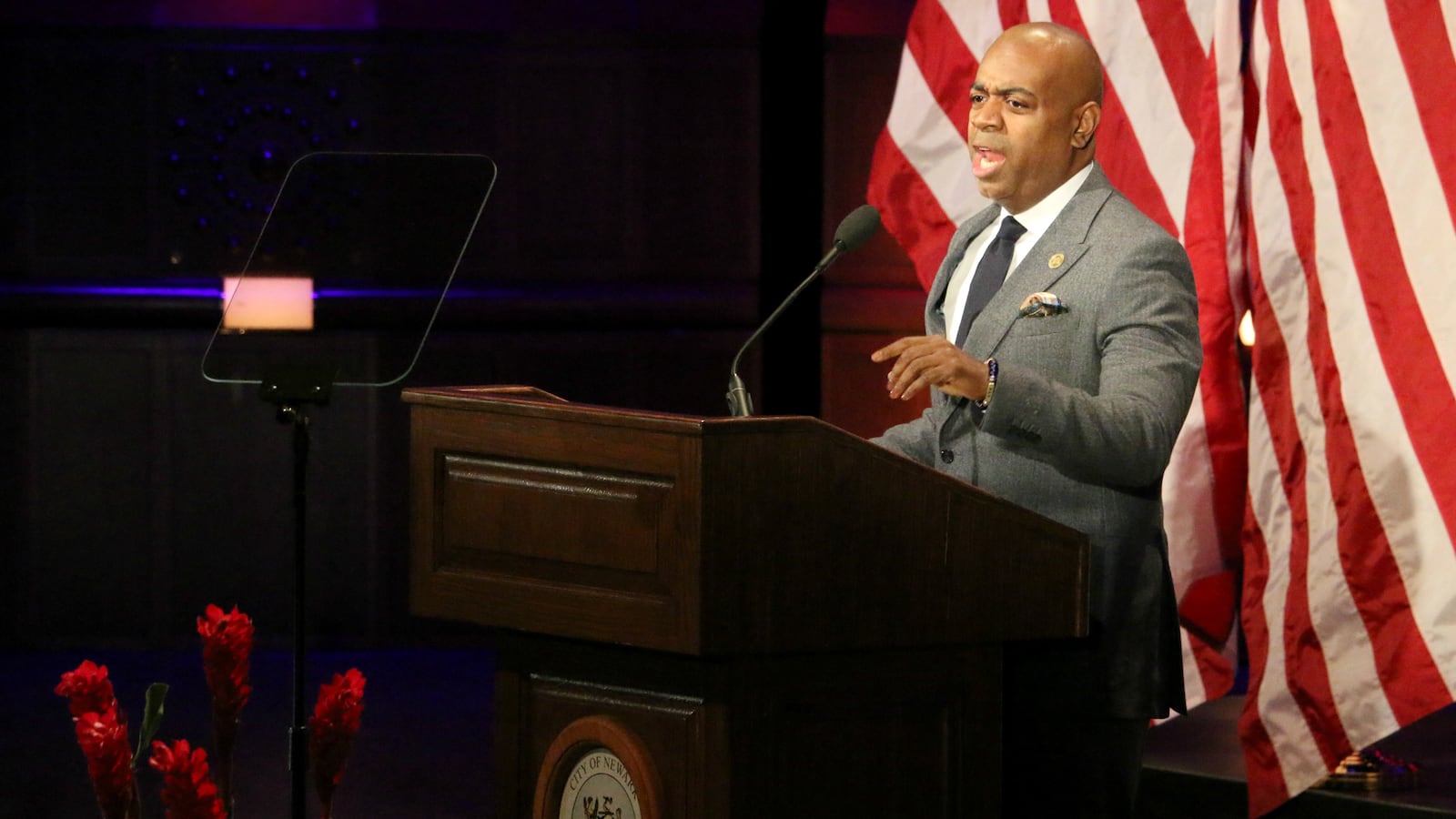Mayor Ras Baraka wants to hit the brakes on Newark’s charter-school sector, saying Thursday that its rapid growth could “suck the life out of traditional schools.”
The proliferation of the privately operated but publicly funded schools has contributed to gaping holes in the district’s budget, forcing school closures and staff reductions. Today, about 16,000 Newark students — or a third of the total — attend charter schools.
“It’s enough now,” Baraka said during an interview at City Hall, where he rekindled a charged debate about the proper size of the city’s charter sector. Arguing that charters should not “expand arbitrarily, aggressively, without any consideration for the traditional public schools,” he called on state officials to hit pause.
“Whatever they have approved — that’s it,” said Baraka, a Democrat who is running for re-election in May. “They shouldn’t go anymore until this is thought out.”
The number of Newark students in charter schools quadrupled over the past decade under former Gov. Chris Christie, a Republican who is an avid charter proponent. Thanks to future expansions that Christie officials approved before leaving office, Newark’s charter sector could serve more than 40 percent of city students within five years. (Only seven districts across the country had 40 percent or more of their students in charter schools last year.)
But, in recent months, the climate for charters has changed dramatically.
Christie has been replaced by Gov. Phil Murphy, a Democrat who proposed a “time out” for charter expansions during his campaign. Christie’s handpicked superintendent for Newark has left and a new one will be chosen by the city’s elected school board — which includes some outspoken charter skeptics. And now Baraka is calling on the state — which must sign off on any new charters — to halt their expansion.
He has made similar appeals before, which sparked outrage among charter supporters.
In 2015, he called KIPP New Jersey — one of Newark’s largest and top-performing charter operators — “highly irresponsible” for planning to open several new schools and enroll thousands of additional students. Shortly after, he asked then-State Education Commissioner David Hespe to deny KIPP’s expansion request, along with those of several other charter operators. (Hespe approved the plans.)
Newark Public Schools loses 90 percent of the funding attached to any student who opts into a charter school. This year, the district will transfer about a quarter of its budget — roughly $237 million — to charter schools. At the same time, new students have been enrolling in district schools even as state funding barely budged for several years.
That combination of lost revenue to charters, additional students, and flat funding has left the school system with $70 million budget shortfalls in recent years, forcing the district to shrink its workforce and reduce student services.
If state funding remains flat and charters “just grow, grow, grow,” Baraka said Thursday, “it will suck the life out of traditional schools — and we can’t have that.” (Murphy has proposed increasing state aid to Newark schools by 5 percent this year, but state budget negotiations are still ongoing.)
Baraka may be alarmed about the spread of charters — but he also recognizes that they are deeply popular with many of his constituents. Last year, about half of families applying to kindergarten listed charter schools as their top choice.
He has often said that he’s responsible for all Newark children — regardless of what type of school they attend — and just last month he gathered dozens of principals from district, charter, and private schools to talk about shared priorities. On Thursday, he said charters are a fact of life in Newark — whether he likes it or not.
“We can’t, like, burn the schools down — people’s kids are in there,” he said. “So we have to make sure they’re successful. And we’re all in this city, so we have to play in the sandbox together.”
He has also been willing to form political alliances with the charter sector. For the third year in a row, he has joined the city’s charter leaders and a North Ward councilman in backing a single slate of candidates in the school-board elections.
“The mayor’s not stupid,” said Newark Teachers Union President John Abeigon. “Charter-school people vote.”
On Wednesday, the union endorsed Baraka in his re-election bid. The NTU, along with New Jersey’s main teachers union, have called for a statewide moratorium on new charter schools and expansions of existing ones.
State education department spokesman Michael Yaple would not say whether the agency is considering a freeze on charter approvals. But he said the department is planning a “comprehensive review” of the state’s charter law, and pointed to recent comments by Education Commissioner Lamont Repollet, who said he would not “put aside” applications for new charters.
KIPP New Jersey, which plans to grow its enrollment from about 4,100 students in Newark to 7,800 over the next few years, did not respond to a request to comment on Baraka’s statements. But in an interview earlier in the week, CEO Ryan Hill said that Baraka had been mostly “even-handed” toward charter schools.
“I think he knows our schools are doing good things for kids,” Hill said, “and those kids are his constituents and he has to be mayor of the whole city.”

